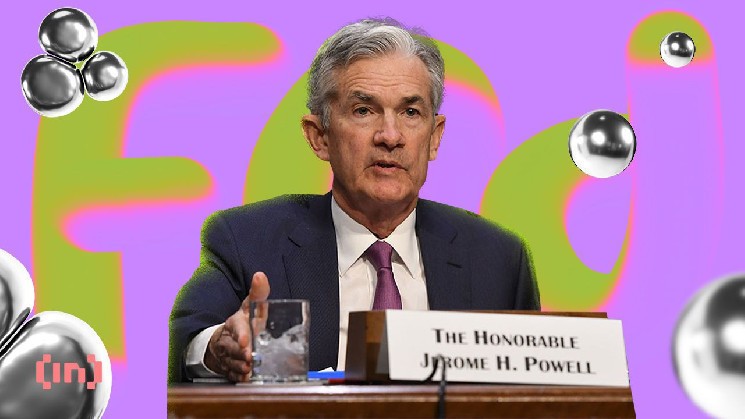US Federal Reserve Focuses on International Swap Lines To Boost Dollar Liquidity

The United States Federal Reserve is taking coordinated action with other central banks. The goal is to enhance liquidity provision via the standing U.S. dollar liquidity swap line arrangements.
The United States Federal Reserve is taking more steps to help stabilize the economy, with the nation’s central bank coordinating action with other central banks. In a press release issued on March 19, the Federal Reserve stated that it was working with the Bank of Canada, the Bank of England, the Bank of Japan, the European Central Bank, and the Swiss National Bank.
The goal is to “enhance the provision of liquidity via the standing U.S. dollar liquidity swap line arrangements.”
Central banks currently offering U.S. dollar operations will increase the frequency of 7-day maturity operations from weekly to daily. The change will take place from March 20 and will continue at least until the end of April. The hope is that this will act as a liquidity backstop that will ease strains in global funding markets.
It’s another major move by the U.S. central bank, which has been dealing with a rough market and the crash of several notable banks. The interest rate hikes were a major talking point when they came up. With 2023 looking like a year of a possible recession, investors and analysts are going to keep a very close eye on the Federal Reserve’s actions and words.
Swap Lines Used During Tough Economic Periods
The use of international swap lines often happens during economically challenging periods. It was implemented following the 2008 recession and the COVID-19 pandemic. Central bank liquidity swaps are likely to peak again following the Fed’s announcement.
The closure of several banks, the retraction of the tech sector, and the threat of a global recession have every individual and company concerned.
At the moment, it’s hard to tell how global markets will play out — though crypto investors are celebrating the fact that Bitcoin is spiking during this crisis.
Uncertainty Aplenty in the Global Economy
BitMEX co-founder Arthur Hayes has explained his view on the decision, saying that it is “another way to bailout non-U.S. banks that isn’t obvious to the average person.”
His explanation of the situation is well worth reading, and his conclusion is, “Money Printer Go Brr!”
Some have said that swap lines are unrelated to quantitative easing and inflation, though others seem to disagree. Crypto enthusiasts are strongly focused on the impact these decisions will have on the crypto market.
Bitcoin BTC Price Chart by BeInCrypto
Messari CEO Ryan Selkis believes that the banking crisis and general economic conditions will help boost Bitcoin prices. His prediction is that Bitcoin could reach $100,000 within the next twelve months as a result of current macroeconomic conditions, though he clarifies that this is a best-case scenario.






 Bitcoin
Bitcoin  Ethereum
Ethereum  Tether
Tether  USDC
USDC  TRON
TRON  Dogecoin
Dogecoin  Cardano
Cardano  Monero
Monero  Bitcoin Cash
Bitcoin Cash  Chainlink
Chainlink  LEO Token
LEO Token  Stellar
Stellar  Zcash
Zcash  Litecoin
Litecoin  Hedera
Hedera  Dai
Dai  Cronos
Cronos  Tether Gold
Tether Gold  OKB
OKB  Ethereum Classic
Ethereum Classic  KuCoin
KuCoin  Cosmos Hub
Cosmos Hub  Gate
Gate  Algorand
Algorand  Dash
Dash  VeChain
VeChain  Stacks
Stacks  Tezos
Tezos  TrueUSD
TrueUSD  Decred
Decred  IOTA
IOTA  Theta Network
Theta Network  Basic Attention
Basic Attention  NEO
NEO  Synthetix
Synthetix  Qtum
Qtum  0x Protocol
0x Protocol  Ravencoin
Ravencoin  DigiByte
DigiByte  Zilliqa
Zilliqa  Nano
Nano  Siacoin
Siacoin  Numeraire
Numeraire  Waves
Waves  Ontology
Ontology  Status
Status  Enjin Coin
Enjin Coin  BUSD
BUSD  Hive
Hive  Pax Dollar
Pax Dollar  Lisk
Lisk  Steem
Steem  Huobi
Huobi  OMG Network
OMG Network  Bitcoin Gold
Bitcoin Gold  NEM
NEM  Augur
Augur